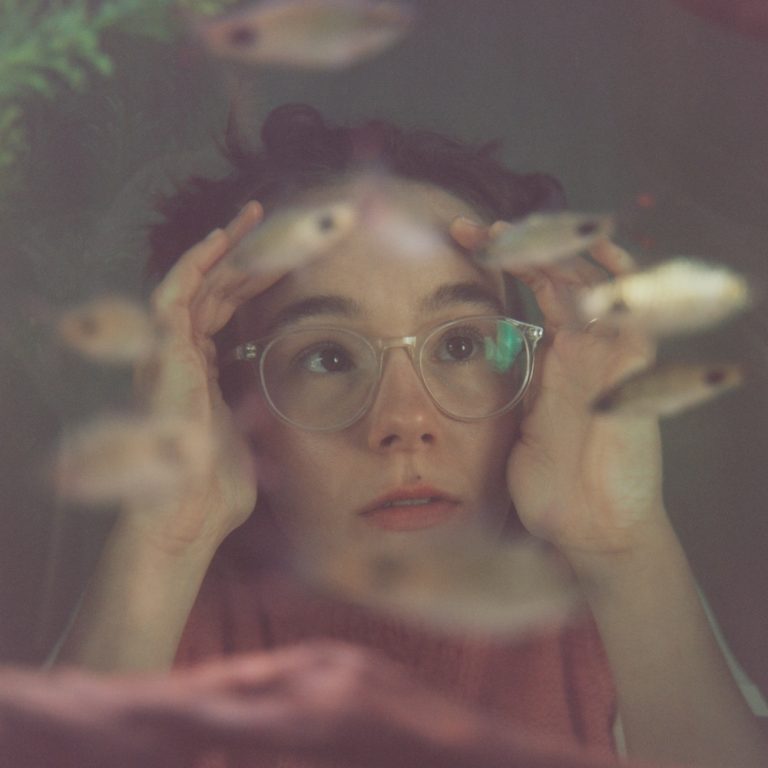The universe fought back a smile when it handed the bespectacled Morgan Harper-Jones an opportunity to record a song for a Netflix movie called Love At First Sight. While it remains to be seen if Haley Lu Richardson will do for her what Winona Ryder did for the cateye-framed Lisa Loeb, the feature has placed the Rochdale-born singer/songwriter in an enviable position as she releases a personal reboot.
Harper-Jones’ full-length debut Up To The Glass opens by repeating the story of someone who was once literally hit by a bus. Pedro The Lion’s “Transcontinental” took someone else’s similarly horrible story as a pedestal for self-flagellation, but Harper-Jones pockets it as inspiration: “Two broken legs, a head full of stitches and more time to think than you need / But night turns to day and strength starts to grow from acorns to oak trees / You know I think about you / When every wall around me is caving in”. And so we begin to see that while she’s standing at the glass in specs, she’s not passively spectating.
Two years ago, on the While You Lay Sound Asleep EP, Harper-Jones took comfort in the role of living uninvolved. The enchanting “Never Have You” saw all potential relationships as impending disasters: “I’m a coward in reality / That’s why I’m pushing you away”. Back in the present, “Forever For Now” seems like a direct response to “Never Have You”. It’s presently her job to take emotional risks, full-speed ahead: “It seems I love just because I exist”. “Alone With You” goes a step further by begging for the company of a lover who hit her like a bus before and will again: “It might be nice if you were here… then you can do what you do best, and disappear”.
The emotional core of the album is bifurcated. “Main Character” lays out why she has changed her mental approach: regret exhaustion and “Banging on the glass like it matters”. The other is the grief-stricken “Lose A Tooth” on which she describes a woman who still absent-mindedly sets a second fork on the dinner table. While the former likely comes from frustration with abandonment issues, the latter could derive from the recent deaths of the grandparents who raised her. Recorded so the vocal approximates what it’s like to sing through tears, she powerfully portrays life’s fragility particularly in the minds of those left behind. Throughout the tracks, she illuminates a network of train stations, convenience-store restrooms, paved shoulders, and car radios: meaningful events happening in meaningless locations.
Musically, Harper-Jones and friend Iain Archer chart a varied course that ranges from Nick Drake (“Forever For Now”) to Kelly Clarkson (“Boombox”), but draws repeatedly from the Lilith Fair era. Grungey, baritone guitar grips “2D”, “Swimming Upstream” harks to Sarah McLachlan, and Natalie Merchant peeks through “Main Character”. For not being a drum album, per se, the drums feature prominently in the mix to the point where Harper-Jones (on “Lose A Tooth” and “Little Avalanches,” for example) gets pushed backward: a potent symbol of the resolve required to complete this project.
Though it’s technically a debut, Harper-Jones has several EPs to her credit. Nevertheless, Up To The Glass has the freshness of introduction thanks to her personal reinvention. On “2D”, she muses whether life is sometimes like the movies – it’s not impossible.

